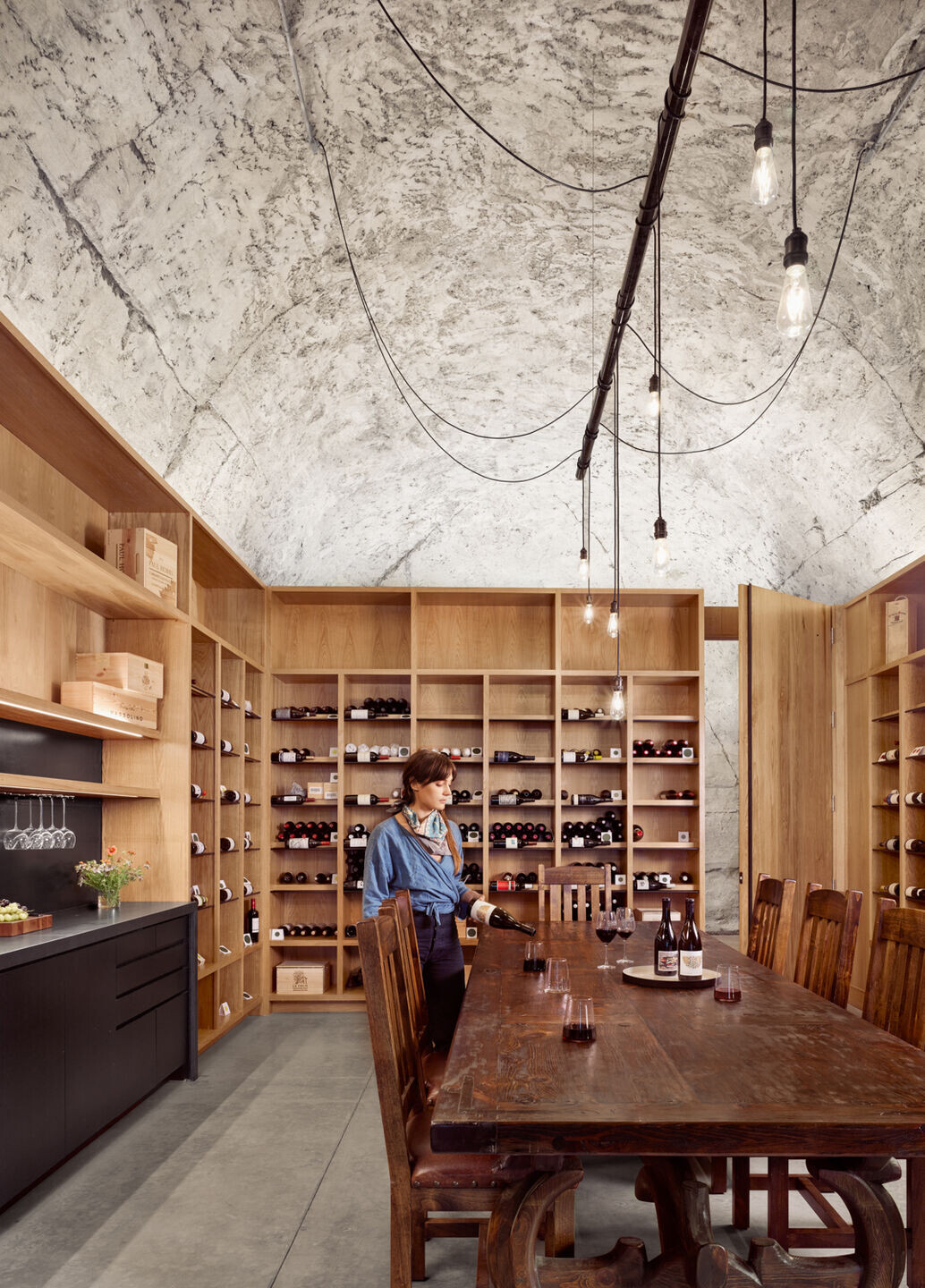Located at the eastern edge of the Texas Hill Country, this private wine cave serves as a destination along a secluded bend of the Blanco River. Excavated into the north face of a solid limestone hillside, this shotcrete lined tube is protected on the east and west by tall oak and elm trees, allowing it to nearly disappear within the native landscape.

The unassuming exterior entry court reveals a bit of mystery as it provides just a glimpse of what lies within. Heavy limestone boulders, collected from the excavation, and lush vegetation further camouflage the entry as you descend into the mouth of the cave.

A tasting lounge, bar, wine cellar, and restroom are all tucked into an 18’ tall x 70’ deep existing tunnel. The exterior opening of the cave is capped with a board-formed concrete portal that molds to the irregular surfaces of the limestone and structurally retains the mouth of the earth cut. The concrete is meant to patina naturally over time as native moss and ivy clings to the face and climbs onto the flanking limestone walls to further blend the headwall into its surroundings.

Once inside, a study of white oak, both raw and ebonized, mixes with vertical grain Douglas fir to panel the walls and dropped ceilings as a warm contrast to more rugged concrete and stone that surrounds. Custom insulated and thermally broken steel and wood windows provide separation between the interior and exterior, as well as the entertaining lounge and the chilled cellar.

Reclaimed cedar was salvaged and milled for live-edged countertop surfaces for the tasting bar and the floating restroom vanity. "It's like a ship in a bottle," notes Brian Korte, FAIA, lead architect for the project. "The components of the wood insert are deliberately kept away from the existing cave walls so that the room remains adaptable."

Sitting under the fully arched profile at the back of the cave, the private cellar is surrounded by casework providing storage for an ever-expanding private collection of +/-10,000 bottles. This space is thermally controlled by the naturally colder subterranean temperatures with supplemental cooling to help maintain an optimal atmosphere of 55-60 degrees.

Clayton Korte project team
Brian Korte, FAIA, Partner
Camden Greenlee
Brandon Tharp
Project team
Architecture and Interior Design: Clayton Korte
Structural Engineer: SSG Structural Engineers
Civil Engineer: Intelligent Engineering Services
Lighting Design: Studio Lumina
Mechanical Engineer: Positive Energy
Concrete subcontractor: Dash Concrete
Specialty steel fabrication: Fasone and Associates
Art metalwork: Cactus Max Fine Metal Artwork
Contractor: Monday Builders
Photography
Casey Dunn



































